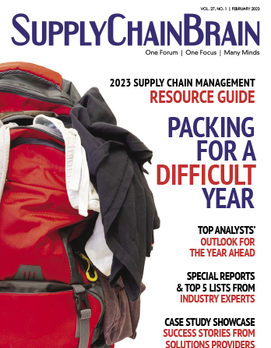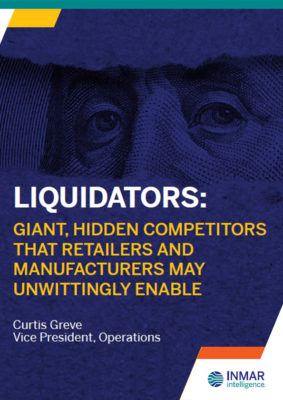In order to access your account, please login below.
ARTICLES
Inmar Partners With Iconmobile on Retail Point-of-Sale Data
January 11, 2011
Subscribe to our Daily Newsletter!
Timely, incisive articles delivered directly to your inbox.
Popular Stories
-

Say Goodbye to Supply Chain Woes With Berkshire Grey and Locus Robotics' Best-in-Class Integrated Solution
-

Reshaping the Future of Logistics: An Outlook on Warehousing Automation Trends
-

New Strategies for De-Risking Global Supply Chains
-

Only 10 Electric Vehicles Qualify for Full $7,500 U.S. Tax Credit
-

Where Will High-Tech Manufacturers Get Their Semiconductors?

2023 Supply Chain Management Resource Guide: Packing for a Difficult Year
VIEW THE LATEST ISSUECase Studies
-
JLL Finds Perfect Warehouse Location, Leading to $15M Grant for Startup
-
Robots Speed Fulfillment to Help Apparel Company Scale for Growth
-
New Revenue for Cloud-Based TMS that Embeds Orderful’s Modern EDI Platform
-
Convenience Store Client Maximizes Profit and Improves Customer Service
-
A Digitally Native Footwear Brand Finds Rapid Fulfillment




